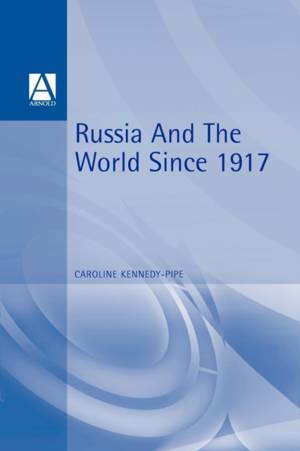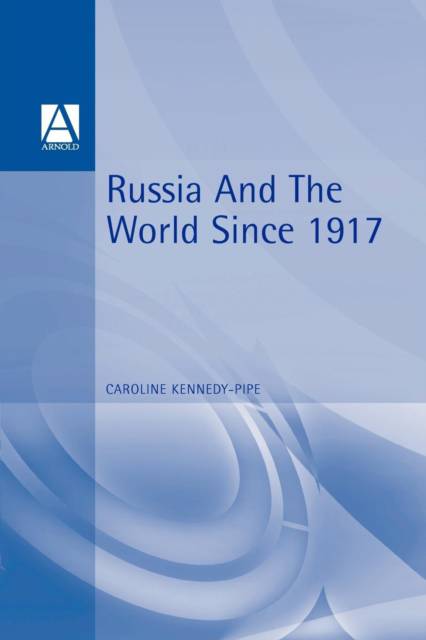
- Retrait gratuit dans votre magasin Club
- 7.000.000 titres dans notre catalogue
- Payer en toute sécurité
- Toujours un magasin près de chez vous
- Retrait gratuit dans votre magasin Club
- 7.000.0000 titres dans notre catalogue
- Payer en toute sécurité
- Toujours un magasin près de chez vous
Description
An investigation of the evolution of Soviet foreign policy from the
Revolution of 1917 until the end of the Soviet era, tracing the origins
and characteristics of Soviet external strategies from their
Marxist-Leninist roots through to the collapse of communism. There is a
careful analysis of Soviet foreign policy alongside the inception of the
Bolshevik state with its global manifesto of revolutionary change;
Stalin's struggle to survive the twin threats of a revisionist Germany
and militant Japan through alliance with the capitalist states; the
expansion of Soviet power in the closing stages of World War II and the
subsequent Cold War; the Soviet search for some form of accommodation
with the West from the 1960s onwards; the attempts of successive
leaderships to find a way of regenerating the failing Soviet system and
the impact of economic weakness on Soviet behaviour in both the Third
World and Eastern Europe. Based on a wide range of sources, including
Russian materials that have become available since the end of the Cold
War, this work differs from many standard accounts in its emphasis of
the factional nature of decision-making over external strategies and its
description of competing strains in Soviet thinking about the outside
world.
Spécifications
Parties prenantes
- Auteur(s) :
- Editeur:
Contenu
- Nombre de pages :
- 240
- Langue:
- Anglais
- Collection :
Caractéristiques
- EAN:
- 9780340652053
- Date de parution :
- 15-07-11
- Format:
- Livre broché
- Format numérique:
- Trade paperback (VS)
- Dimensions :
- 150 mm x 226 mm
- Poids :
- 340 g

Les avis
Nous publions uniquement les avis qui respectent les conditions requises. Consultez nos conditions pour les avis.






